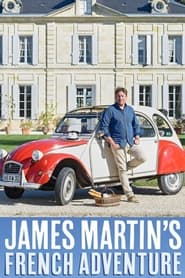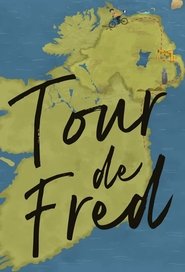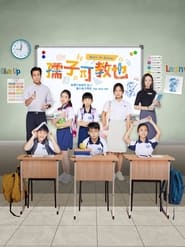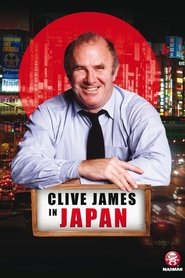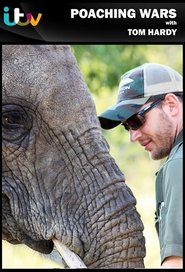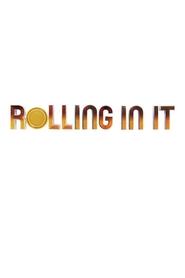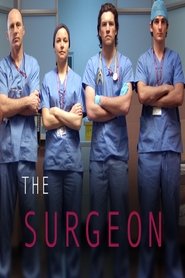Itv1 TV Series - Page 82
-
The Big Call
0000
The Big Call
0000
The Big Call is an ITV quiz show created by Kevin Ball and Mast Media. It was made by Granada Productions and presented by Neil Fox with support from Big Call Professor Geoffrey Grimmett and announcer Peter Dickson. Six members of the public challenged it out, with the help of the celebrity of their choice. The winner went onto the Pressure Point to decide between a guaranteed cash prize of £20,000 or 100,000 Lottery tickets chosen at different risk levels by the Big Call Professor. If the contestant chose the £20,000 cash prize, a phone-in viewer had the opportunity to win the 100,000 Lottery tickets. In the final episode of the series, the studio contestant turned down the Lottery tickets and chose the £20,000 cash prize. The phone-in viewer who won the tickets received £172,000, as one of the tickets contained 5 numbers plus the bonus ball. -
Harry Redknapp's Sandbanks Summer
2020
Former football manager welcomes celebrity friends to his house in the luxury south coast town. -
James Martin's French Adventure
2017
Chef James Martin sets off in an old 2CV to track down the old French culinary haunts of chef Keith Floyd -
Death at the White Hart
0000
In the Dorset village of Fleetcombe, the village pub's landlord is found murdered. Detective Nicola Bridge must unpick a web of lies and rivalries to unmask the killer. -
Everybody's Equal
0000
star 7Everybody's Equal was a game show hosted by Chris Tarrant and aired on ITV from 7 June 1989 to 22 July 1991. Versions also existed in many European countries, plus Canada. Elements of the show resemble Tarrant's future hit Who Wants to be a Millionaire?, particularly its "Fastest Finger First" game. The format was simple - 200 contestants were asked a question with four options and those who got it right were asked another. This continued until less than ten players survived, at which point they face four questions which are worth £50 each. The player who correctly answers the final question the fastest goes on to play the final round. The winning contestant must place four things into the correct order, to win £1000. If they get it wrong, the money is divided equally between all the other contestants. This was all made possible via the use of 200 small handsets, which were centrally linked to a computer. -
ITV News London
0000
star 8ITV News London is a regional news programme for the ITV London region, produced by ITN. -
Freetime
1980
Freetime
1980
Freetime was a twice-weekly children's television programme shown on ITV between 1981 and 1985. Produced by Thames Television, it was a magazine format show devoted to hobbies and interests, and was designed to encourage viewers to get out and about rather than staying at home and watching television. It was hosted by the former Magpie presenter Mick Robertson. He was initially joined on set by Trudy Dance, but she was soon replaced by Kim Goody until it was axed by the network in 1985. On 16 September 1988, Thames Television briefly re-launched Freetime, this time fronted by Andi Peters, but the series was cancelled after its fifteenth and final edition on 23 December 1988. -
Britain's Brainiest Kid
0000
Britain's Brainiest Kid was a British television quiz show produced by Celador, which originally aired in a one-off special format on ITV on 9 August 2001, hosted by Carol Vorderman. A subsequent series was aired in late 2002. -
New Faces
0000
New Faces
0000
New Faces was a British television talent show popular in the 1970s and 1980s, presented originally by Derek Hobson. It was produced by ATV Network Limited for the ITV Network. The first run of the show was from 29 September 1973 to 2 April 1978 and was recorded at the ATV Centre, Birmingham. The show was noted for its theme tune, "You're a Star!", performed by singer Carl Wayne, formerly of The Move, and it was eventually released, becoming a minor hit. Winners occasionally went on to greater success in television entertainment. Many top entertainers began their careers with a performance on this programme. The acts were evaluated by a panel of experts, including Clifford Davis, Ingrid Pitt, Mickie Most, Alan A. Freeman, Clive James, Muriel Young, Ted Ray, Ed Stewart, Jack Parnell, Arthur Askey, Noel Edmonds and Tony Hatch. Davis, Most and Hatch were especially notorious for being "hard" on contestants. Four judges would make up the panel each week. Tony Hatch made the headlines after one edition for giving a con -
Tour de Fred: Northern Ireland
2025
Fred Sirieix embarks on a gastronomic cycling tour of Northern Ireland to discover the region's best-kept delicious secrets. -
Born to Shine
2024
Born to Shine
2024
Born to Shine was an ITV entertainment programme which featured celebrities who learn a new skill taught to them by talented teenagers, live on Sunday evenings. The show was presented by Natasha Kaplinsky and won by Jason Manford. -
Clive James in Japan
1987
star 7Clive James finally travels to Japan and finds out for himself what it's like to participate in the kind of crazy game show he has observed for so long when he is a contestant on Takeshi's Castle. Clive also discovers what the Japanese 'salaryman' does to let off steam at the end of his record-breaking productive day. Culture shock hits Clive hard, sitting cross-legged for hours on end, being fed raw fish by Geisha girls and attempting to navigate the Tokyo subway system. All this on top of jet lag! Clive's culture shock worsens as he continues his journey through Japan and is almost flattened by a 35-stone Sumo wrestler and then travels to the health spa of Beppu to be voluntarily buried up to his neck in volcanic sand and simmered like a potato in a boiling sulphur bath, inexplicably full of grapefruits. See what Japan was like back in 1987, with Clive's unique, clever and humourous observations. -
Ghost Train
0000
Ghost Train
0000
Ghost Train was a children's television programme broadcast on ITV, between 1989 and 1991, produced by Tyne Tees Television in association with various ITV regional stations including Border Television, Television South West, Ulster Television, Channel Television and Grampian Television. -
Too Many Cooks
0000
Too Many Cooks
0000
Too Many Cooks was a cookery competition on ITV which turns the idea of cookery shows on its head – the people cook for the chefs. It's a chance for great home cooks to prove themselves to the professionals, or be put in their place if their cooking is not up to scratch – contestants often turn out to be worse cooks than they think they are! The show was presented by Jeni Barnett, and the judges were chefs Gino D'Acampo, Richard Phillips and Alex Mackay. All three of the chefs have excellent credentials and aren’t afraid to speak their minds. The problems for the kitchen wannabes – or chefettes as presenter Jeni calls them – is that they have the pressure of time to contend with, an unfamiliar environment and a professional chefs tongue for tasting – or lashing! The show started with four teams of two people and each team had to cook a starter in ten minutes, a main course in twenty minutes and a pudding in ten minutes. They were given the title of the dish and some key ingre -
Poaching Wars with Tom Hardy
2013
star 7Motivated by his love of animals, BAFTA award-winning actor Tom Hardy (Inception, The Dark Knight Rises, Tinker Tailor Soldier Spy) travels to South Africa, Botswana and Tanzania aiming to uncover the truth about why poaching has reached crisis levels and to see for himself what can be done to stop the killing. -
Knight School
0000
Knight School
0000
Knight School was a comedy drama series shown on Children's ITV and made by Granada Television. It was written and created by Mark Billingham and Peter Cocks, who also starred in the series. Two series were broadcast, in the autumn of 1997 and 1998. -
The Golden Shot
0000
star 5The Golden Shot was a British television game show produced by ATV for ITV between 1 July 1967 and 13 April 1975, based on the German TV show Der goldene Schuss. It is most commonly associated with host Bob Monkhouse, though, three other presenters also hosted the show during its lifetime. Hostess Anne Aston was on hand to read out the scores achieved by the contestants, and each month a "Maid of the Month", usually a glamour model of the era, would demonstrate the prizes and announce the contestants. When Bob Monkhouse returned to present the show in 1974, he was joined by co-hostess Wei Wei Wong, an ex-member of Dougie Squires' Second Generation dance troupe. This was notable as one of the earliest regular appearances by an Asian woman on British TV. -
Eliminator
0000
Eliminator
0000
Eliminator is a game show in which a group of three children have to answer questions in order to get to the next level of the game, while being chased by a demon named the "Eliminator" who would try to reach them. The show produced two series between 2003 & 2004, and was presented by Michael Underwood. Since 2006, the show has been often repeated on the CITV channel. -
Rolling In It
2020
star 10Three members of the public team up with famous faces to try and win thousands of pounds on one of the biggest arcade games in the world. They'll need to be lucky because everything can change on the roll of a coin. -
Surgery School
2010
Surgery School
2010


